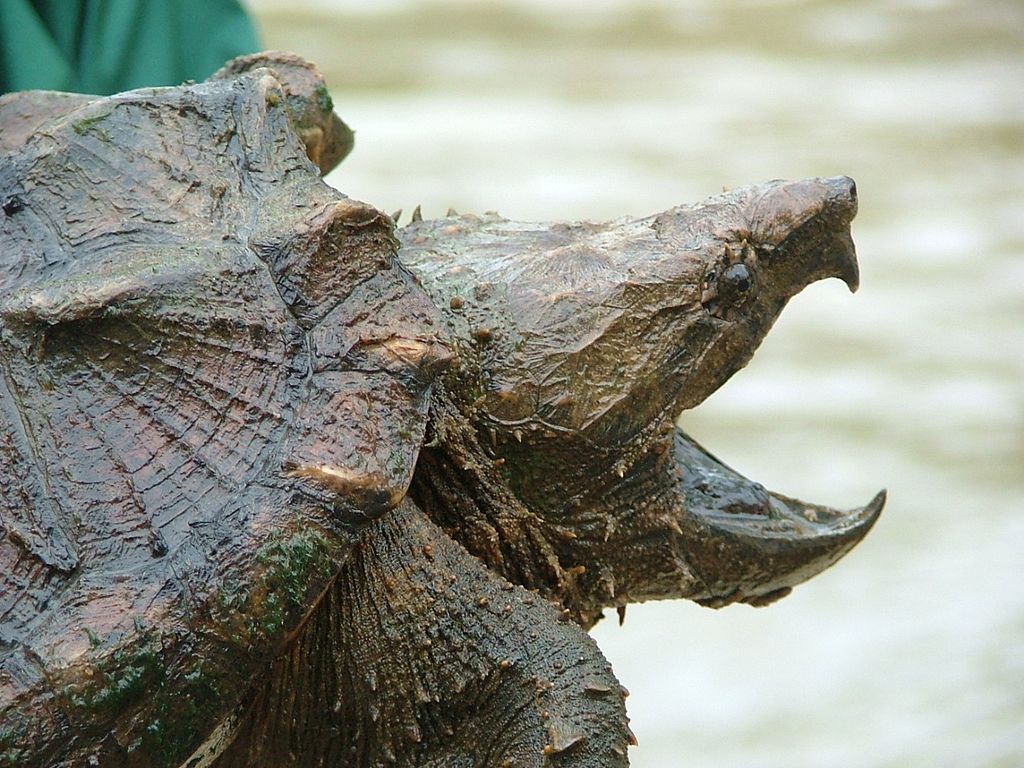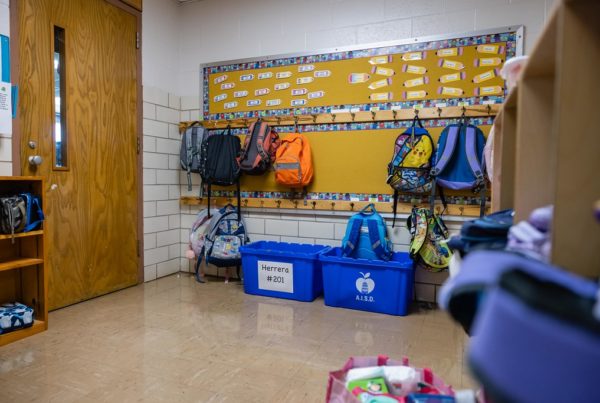The U.S. Fish and Wildlife Service could extend new protections to alligator snapping turtles under the Endangered Species Act, the agency announced this week.
Alligator snapping turtles are enormous, armored reptiles. They’re known to live in 14 states, including Texas. Experts believe their population is in decline.
Christopher Schalk, an assistant professor of forestry wildlife management at Stephen F. Austin State University, spoke with Texas Standard about the species’ status in Texas.
Texas Standard: Alligator snapping turtles live throughout the eastern third of Texas. About how many of them are out there?
Christopher Schalk: That’s the big question. And really the answer is, in Texas, we don’t really know because there’s only been a few studies assessing a superficial approach to their numbers. We’re just trying to determine where they are. So the real answer is we’re not sure. We’re just starting to find out where they’re occurring and what drainages seem to result in higher captures of turtles.
If you don’t know the precise numbers, what about this proposal from the U.S. Fish and Wildlife Service? They claim the population is dropping. Does that at least seem well established?
Alligator snapping turtles possess a number of traits that make them really susceptible to declines. They’re not attaining sexual maturity until anywhere from between 11 to 21 years of age. And also, for the populations to persist, female survivorship needs to be around 98% each year. So basically, if you have anything more than 2% removal of females from a population, the population would likely experience a drop in numbers.
And another threat that we know are poachers. The alligator snapping turtles protected within the state. But there’s evidence of poachers coming over from Louisiana and illegally collecting these animals and bringing them back to Louisiana.
I understand you and some of your research assistants actually took care of some alligator snapping turtles that have been retrieved from poachers as part of a sting operation. What were some of your takeaways from that experience?
Basically, the Fish and Wildlife Service arrested some poachers that collect the turtles in Texas, brought them to Louisiana, and we were able to repatriate them back to Texas waters. These turtles are pretty hardy creatures. We’re radio tracking them currently. And they’re finally starting to settle down and establish a home range. But it’s good to see them back out there doing their turtle thing.
Every state where these turtles live has already put them on a protected species list. So why is it necessary for the federal government to do the same?
For the federal government, the main thing is protecting critical habitat. The main thing that we’re finding here in East Texas is, basically if you have water with some sort of submerged structure, within certain drainages, chances are you are going to find [alligator snapping tutles]. So in terms of how you define and protect critical habitat, that’s going to be a challenge for governments to do.
Why are these turtles so desired by poachers?
There’s a couple of reasons. One of them is pet trade. Also, their meat is desirable. We’re analyzing mercury content in their meat. And we’re finding that you probably shouldn’t be eating alligator snapping turtles because they’re chock full of mercury. And [poachers are] also shipping them out to Asian markets for things like farming.
Are there any industrial interests, or any organized interests in East Texas that might push back against this new federal designation?
The answer is we don’t know what impacts these habitat alterations would have on individuals or populations. So things like dredging or any sort of in-stream management – how that impacts populations, we don’t know. But potentially it could be an issue.















